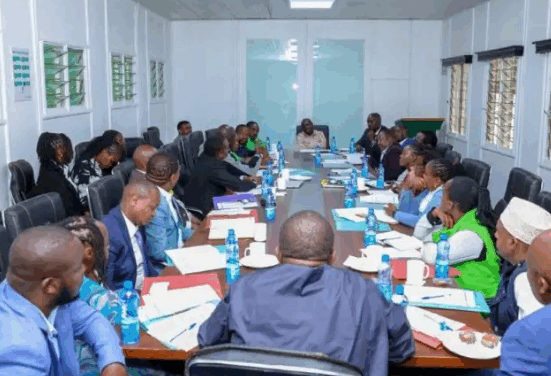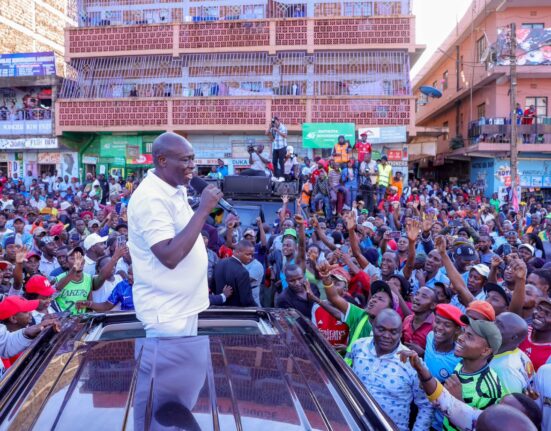Nelson Amenya, well-known for exposing the Adani-JKIA agreement, has delivered another bombshell. However, this time it is about an alleged hidden redesign of Kenya’s currency, just a year after the money’s security features were upgraded.
Amenya told X on Monday, June 2, that the administration had changed the design of the currency and had already begun mass printing of the new currency in Germany without alerting the public.
“The Government of Kenya has quietly changed the design of our currency and is now printing it in Germany without any public disclosure or participation,” Amenya claimed.
Notably, the Central Bank of Kenya (CBK) Governor, Dr Kamau Thugge, disclosed in August 2024 that the government had contracted a German corporation to produce its money without disclosing its identity. “The printing is being done by a German firm, and it is actually one of the best firms,” the governor stated in a press briefing.
Kamau explained that it was a typical operation for CBK and that old notes that were becoming worn out needed to be replaced. Although Kenya changed its currency design in 2019 and will update it in 2024, no details of the change have been made public.
In his post, Amenya claimed that Kenya had violated its contract with Nairobi’s De La Rue, which bans the Kenyan money from being printed by other printing companies.
According to Amenya, violating this deal might cost Kenya far more. He further claimed that the contract was a gift to Raila Odinga for joining the broad-based administration. “But that’s not even the worst part. In doing so, they breached a non-compete clause in the existing contract with De La Rue, a move that could cost taxpayers billions, just like the Arror and Kimwarer dam scandal,” he stated.
“Reports indicate it was a contract awarded to Raila Odinga for his handshake with Ruto.” However, De La Rue made news in 2023 after spending around Ksh2.7 billion to reduce its activities by paying lawyers, sacking employees, and writing off assets.
The printing company, which employed approximately 300 people at the time, abandoned a joint venture with the Kenyan government, which owned 40% of the deal, claiming insufficient demand for banknote printing and other security items.
Earlier in 2018, the High Court authorized the CBK to open tender bids for the printing of the new Kenyan currency.
They rejected an application from De La Rue Security Printing and another interested printing company to prevent the CBK from opening the tender materials.
Last year, the government took De La Rue’s money production contract and awarded it to the German business Giesecke+Devrient Currency Technology GmbH.
Amenya’s assertions follow CBK’s revelations to Parliament, which show that the government has since begun printing the money in Germany. However, CBK has yet to react to the latest revelations.













Leave feedback about this